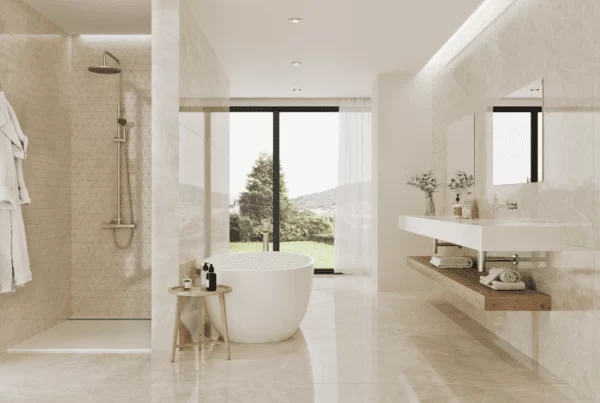What is the best stone to use for a kitchen worktop?
Stone worktops look very elegant, and make the whole kitchen look much more mesmerising, whilst they create a much more energising design compared to other kinds of worktops such as laminate, solid surfaces or even acrylic. They are not much more expensive than other materials, but they make a huge difference, so that is why most people these days tend to go for a stone worktop they want a change in their kitchen. The worktop is so significant in the kitchen, that even without changing any of the parts of the kitchen, but rather only changing the worktop, will make a huge difference to the room, and will make the kitchen seem new. The worktop is the most used and the most functional section of the kitchen, and so it must be made of a very strong and scratch resistant material. It also forms the biggest part of the kitchen, covering all the base unit tops, and so it must also look glamorous. The worktop is also where all the food is prepared, and so it must be made of a surface that is easy to keep always clean, in order to maintain hygiene, and should not require much effort to achieve such an important criterion. Stone worktops are the only material that covers all the vital aspects of a worktop with no hassle.Even within the stone worktop category, there are so many choices of various types of stone that are available to choose, and so with a wide range of different stone on offer across the market, it may be difficult to choose the ideal stone for your kitchen, that will not only match your preference, but also carry out its job properly. The most common and functional type of natural stone used as a worktop is Granite, however some people may also opt to for a Marble worktop too. However, as technology has developed over the past decades, we have had man-made types of stone being produced, that are also amazing options to consider for a kitchen worktop. But what is the best option to go for? Obviously, none of the options are completely perfect options, but we can still weigh out the pros and cons, and it is up to the customers to decide which route to take, as that will all depend on their preference and requirements.
Quartz is a man-made kind of stone, that is produced using usually around 93% of natural quartz, whilst the remaining 7% consists of resin, pigments, minerals, recycled materials, and other small amounts of various ingredients, to keep the stone very sturdy, and provide it with beautiful style. All of these different parts are mixed together and put under high levels of heat and pressure in a huge furnace, until they hold together very strongly and form one large sturdy slab. The pressure applied to the slabs during production also ensures that there are no pores found in Quartz at all, and so it is extremely stain resistant, and you can rest assured that it will not stain at all as long as it is wiped down regularly, as liquids cannot flow under the surface of the stone easily at all, and it also makes Quartz a more hygienic option for a stone worktop to go for, as the bacteria and other microbes are not able to reside within the pores and multiply only to contaminate the food being prepared upon the countertop surface. Quartz is the most cost effective stone mentioned here, to be used as a worktop, and nevertheless, it is still very scratch resistant and unbreakable under any day to day circumstances and usage. Being engineered stone, Quartz has very consistent patterns, and can even come in book-matched form, so that you can create a mirrored worktop design whereby two sides are exactly the opposite of each other. Furthermore, this ensures that the colours of the background and the veins are all consistent across the slabs, so you can rest assured that you will not have random colour variations like you might get with natural stone.
If one of your priorities is that your worktop must be exclusive and unique, then you must look at natural stone for that, and this is because designs and patterns never (or very rarely) occur twice in nature or repeat exactly the same way. Therefore, when installing a natural stone for your work surface in the kitchen, you can rest assured that nobody else will be able to get the same exact stone slab as you, and so nobody else will be able to have the exact same worktop as you, which makes the worktop very valuable in itself. Furthermore, there is a wide range of colours available with regards to natural stone, as Granite tends to cover the dark colours generally, whereas Marble does the exact opposite, by usually forming in lighter and brighter colours. However, both of them are stunning in their own ways. Natural stone comes in two different finishes, polished or honed. Polished is very nice if you would like your worktop to reflect a lot of light and be very eye-catching – it boasts the vibrancy of the stone and repels moisture much better, but on the other hand if you would like to go for a more subtle atmosphere, and have a much nicer texture and feel to your worktop, then you can go for the honed surfaces, which offer a smooth matt texture by sanding the surface. Unfortunately though, due to natural stone mineral impurities, visible colour variations tend to arise in marble. In addition, due to the pores found in natural stone, they are highly resistant as long as they are sealed using a special kind of grease regularly, in order to try to minimise the size of these pores, but that means that natural stones require maintenance, which is an additional downside to choosing a natural slab to be fitted into your kitchen.
Porcelain is an artificial stone (just like quartz), made from 2 essential ingredients – kaolin and petuntse. Kaolin is a material also known as China clay, and it serves to give the porcelain its main structure. On the other hand, petuntse is added to give the stone translucency and make it rigid. Technology has developed, and so now we also have an option of Dekton, which is very similar to porcelain but with more durability and even more stunning colour and design options. Porcelain also comes with a whole list of attributes, some of which are similar to quartz, that make it an admirable choice for your kitchen worktops. Firstly, it is generally cheaper than natural stone, and requires much less maintenance. It comes with accurate colour and pattern consistency, and has a wider variety of choices. Dekton may also come in a matt finish as opposed to the polished. It also barely has any pores, and so it is highly stain resistant and much more hygienic, requiring barely any maintenance too. Even though Quartz is more durable, as porcelain and Dekton have got relatively fragile edges which risk chipping when exposed to extreme levels of impact, Dekton and porcelain do achieve much better designs and colours, as Quartz is cooked within a furnace, whereas porcelain and Dekton are like a print on a stone base, and so obviously a print will look much nicer than a cooked mixture…similarly to icing on a cake, which will look much better than a cake with cream on the top only, and that is the main selling point of the Dekton and porcelain work surfaces.
Even though it might still be difficult to choose from all the different types of stone after reading about each one, we think that for most kitchens, quartz is the best option. Quartz has got lovely designs, in addition to being heat and scratch resistant, as it is pretty strong. Furthermore, it is arguably the most cost effective out of the four, considering it is very durable and so lasts for a long time, while maintaining the look of a new stone.



